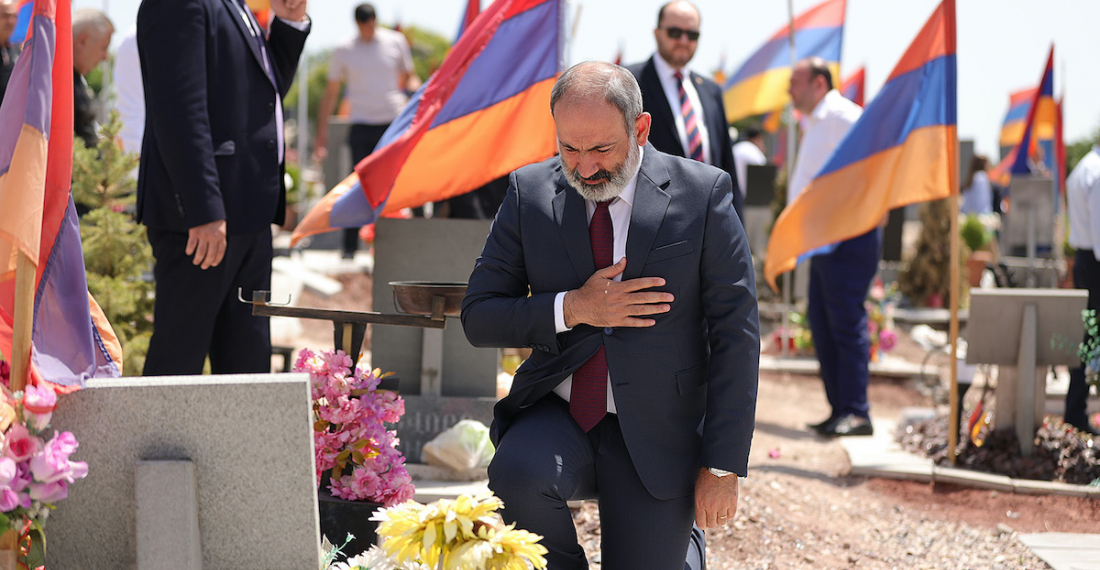Civil Contract, the party led by Nikol Pashinyan, has achieved an unexpected landslide victory in yesterday's Armenian parliamentary election, taking 53.92% of the vote.
Pashinyan’s party was followed by the Armenia Alliance, led by the country’s second president, Robert Kocharyan, which received 21.04% of the vote; and ‘I Have Honor’, supported by the third president of Armenia, Serzh Sargsyan, which received 5.23% of the vote. Whilst ‘I Have Honor’ did not reach the 7% threshold formally required for a bloc to enter parliament, they will be able to do so due to an Armenian electoral law, which requires a third parliamentary party.
In a press conference this afternoon by the international election observers from the OSCE Office for Democratic Institutions and Human Rights (ODIHR), the OSCE Parliamentary Assembly (OSCE PA), and the Parliamentary Assembly of the Council of Europe (PACE), the conduct of the election was generally praised. Speaking at the conference, Eoghan Murphy, Head of the ODIHR election observation mission, said the mission had observed that “candidates could campaign freely throughout the election process, fundamental rights and freedoms were generally respected, and voters were provided with a broad range of options leading to a competitive election”.
The president of the European Council, Charles Michel congratulated the Armenian leader on twitter:
Warm congratulations to @NikolPashinyan on elections victory.
— Charles Michel (@eucopresident) June 21, 2021
The EU stands by Armenia 🇦🇲 in support of deepening reforms.
We are also ready to further support regional stabilisation and comprehensive conflict settlement.
In an opinion piece for commonspace.eu, Benyamin Poghosyan highlighted what Pashinyan’s victory means for the situation in Nagorno-Karabakh:
“In the regional context, Pashinyan's victory means Armenia will continue implementing all written and oral agreements reached with Russia and Azerbaijan after the end of the 2020 Karabakh war. These developments align with Russian strategic interests in the region as they will allow unhindered implementation of Russia–Turkey agreements for the future regional balance of power in the South Caucasus. Most probably, communications will be opened between Armenia and Azerbaijan. President Aliyev will talk about the launch of corridors, while the prime minister, Pashinyan, will speak about highways and railways, but this war of terms will not change the essence. Armenia and Azerbaijan will be transformed into the trade and transportation hubs for Russia to reach Turkey and Iran.”
Speaking from Baku, Dr Vasif Huseynov, a Senior Advisor at the Center of Analysis of International Relations (AIR Center) and a frequent contributor to KarabakhSpace.eu, told commonspace.eu that the results have brought optimism for peace in the region:
"The results of Armenia's snap parliamentary elections were a surprise for most observers in the region, including Azerbaijanis. As opposed to the expectations, the elections took place in a peaceful environment and ended with a landslide victory of the ruling party led by Nikol Pashinyan and the loss of revanchist political groups. This outcome has been interpreted by Azerbaijanis as the approval of the post-war peace and reconciliation efforts between Armenia and Azerbaijan by the Armenian people. Along with that, the emerging chance for the establishment of a stable political environment in Armenia is another factor which is seen by Azerbaijanis as conducive to regional peace and stability. This all has caused some optimism concerning the future of the region."



